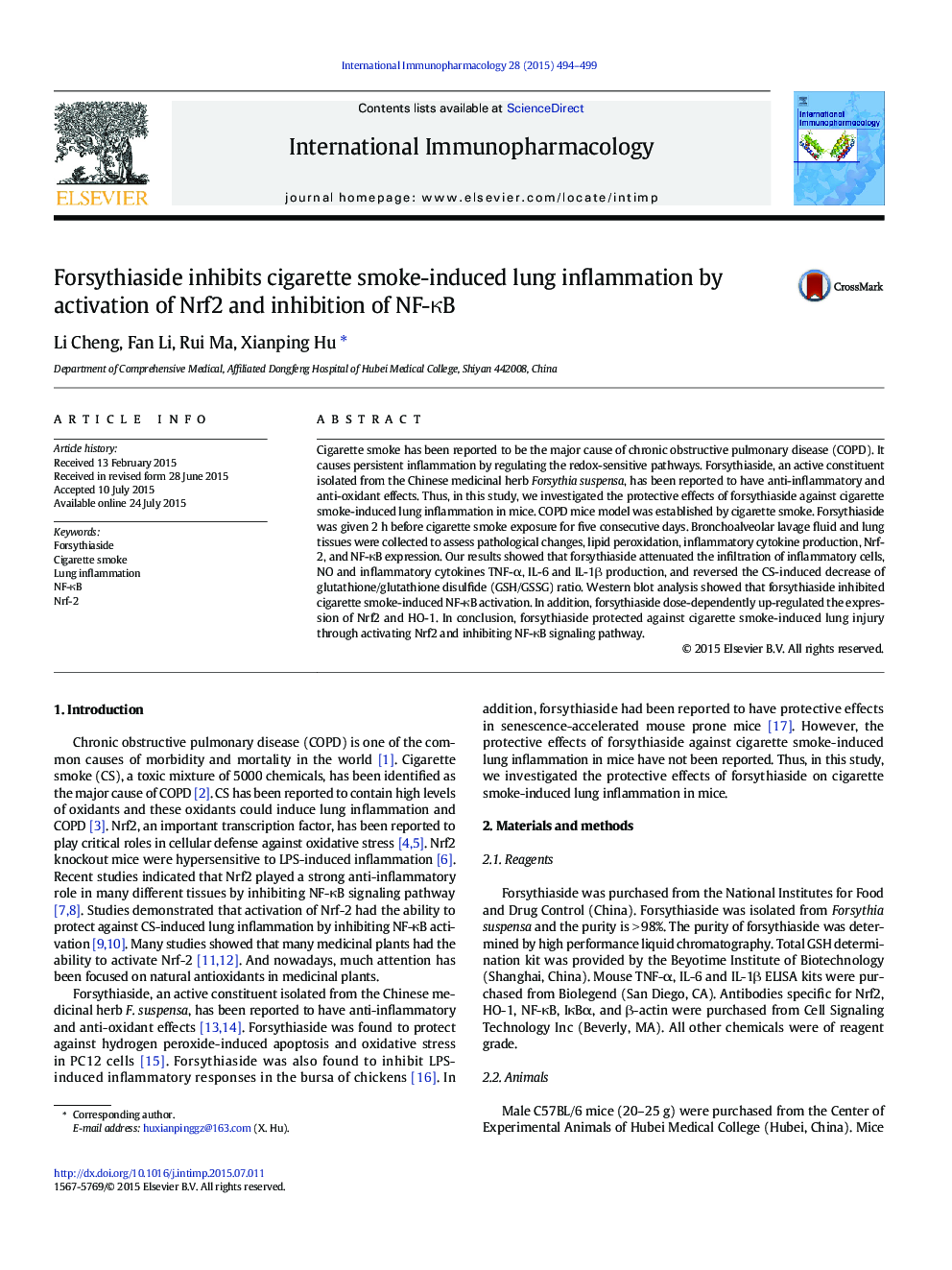| Article ID | Journal | Published Year | Pages | File Type |
|---|---|---|---|---|
| 2540484 | International Immunopharmacology | 2015 | 6 Pages |
•Forsythiaside attenuates the infiltration of inflammatory cells and inflammatory cytokine production.•Forsythiaside inhibits cigarette smoke-induced NF-κB activation.•Forsythiaside up-regulates the expression of Nrf2 and HO-1.
Cigarette smoke has been reported to be the major cause of chronic obstructive pulmonary disease (COPD). It causes persistent inflammation by regulating the redox-sensitive pathways. Forsythiaside, an active constituent isolated from the Chinese medicinal herb Forsythia suspensa, has been reported to have anti-inflammatory and anti-oxidant effects. Thus, in this study, we investigated the protective effects of forsythiaside against cigarette smoke-induced lung inflammation in mice. COPD mice model was established by cigarette smoke. Forsythiaside was given 2 h before cigarette smoke exposure for five consecutive days. Bronchoalveolar lavage fluid and lung tissues were collected to assess pathological changes, lipid peroxidation, inflammatory cytokine production, Nrf-2, and NF-κB expression. Our results showed that forsythiaside attenuated the infiltration of inflammatory cells, NO and inflammatory cytokines TNF-α, IL-6 and IL-1β production, and reversed the CS-induced decrease of glutathione/glutathione disulfide (GSH/GSSG) ratio. Western blot analysis showed that forsythiaside inhibited cigarette smoke-induced NF-κB activation. In addition, forsythiaside dose-dependently up-regulated the expression of Nrf2 and HO-1. In conclusion, forsythiaside protected against cigarette smoke-induced lung injury through activating Nrf2 and inhibiting NF-κB signaling pathway.
